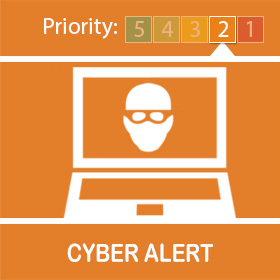 Cyber criminals are taking advantage of the Covid-19 pandemic via phishing emails, websites and text messages to scam members of the public out of large sums of money and sensitive information during these uncertain times across the nation.
Cyber criminals are taking advantage of the Covid-19 pandemic via phishing emails, websites and text messages to scam members of the public out of large sums of money and sensitive information during these uncertain times across the nation.
Together with other law enforcement, Government and private sector partners, we are supporting a national campaign to raise awareness and help people become more vigilant against fraud, particularly sharing their financial and personal information.
Criminals are experts at impersonating people and organisations you trust, even the Police and Government. They spend hours researching for their cons, in order to make you believe what they are saying, and even a brief moment with your guard down is often enough for their scam to be successful.
We want to urge the public when online to:
Stop. It’s important to stop and think a moment before parting with any money or information.
Challenge. Challenge the origin of your email, text or website. Could it be fake? Check with the sender using another method of communication.
Protect. Protect yourself with added security measures where possible and report anything suspicious to your bank or Action Fraud.
Criminals are sending emails offering fake medical support or supplies, tricking people who may be vulnerable, frightened or increasingly isolated at home. These fraudsters try to lure people in with offers that look too good to be true or make appeals to support bogus charities.
Reports from the public have included online shopping scams where people have ordered protective face masks, hand sanitiser and other items via auction sites, which have never arrived. There have also been a number of cases where fake testing kits have been offered for sale.
Criminals are sometimes using Government branding to try to scam people, including false offers of financial support through unsolicited emails, phone calls and text messages. The Government has only sent one text message to the public regarding new rules about staying at home to prevent the spread of COVID-19. Any others claiming to be from UK Government are false.
Since the virus took a hold in the UK there have been more than 100 victims of Coronavirus related fraud, with losses of almost £1m recorded.
Wiltshire Police Detective Inspector, Gemma Vinton, said “Criminals are using the Coronavirus pandemic to their advantage and we have seen examples of them adapting their methods to play upon people’s fear and anxiety. So far we have seen limited incidents in the South West but we are warning everyone to be vigilant, not just the vulnerable or elderly.
“Huge increases in the number of people working remotely means they could be more vulnerable to computer service fraud where criminals will try and convince you to provide access to your computer or reveal logon details and passwords. People are using the internet for shopping more than usual, and relying on the telephone and social media to stay in touch and obtain information, yet these are common arenas in which fraudsters operate.
“We have seen a surge in phishing scams, and are expecting to see even more e-mails and calls claiming to be from government departments offering grants, tax rebates, or compensation, so we must all be cautious. Please also remember that neither your bank nor the police will ever ask you to transfer money to any so-called “safe” account.”
Police and Crime Commissioner, Angus Macpherson, added “This situation is likely to continue, with criminals looking to exploit consequences of the pandemic further down the line, such as offering those with financial concerns false loans or even pension releases. They are callous individuals, looking to line their pockets at the expense of others at a particularly difficult time.
“It’s important to be aware of these scams and take the suggested precautions. As people become more isolated from communities and support networks they are increasingly vulnerable to become targets, and ultimately victims, of cyber scammers. We also ask you to please look out for vulnerable people you know who could be a target and talk to them of the possible dangers.”
If you have been a victim of a cyber crime, please report it to Action Fraud on 0300 123 2040, or via their website at https://www.actionfraud.police.uk
Message Sent By
Sian Rivers (Police, Communications Officer, HQ)
